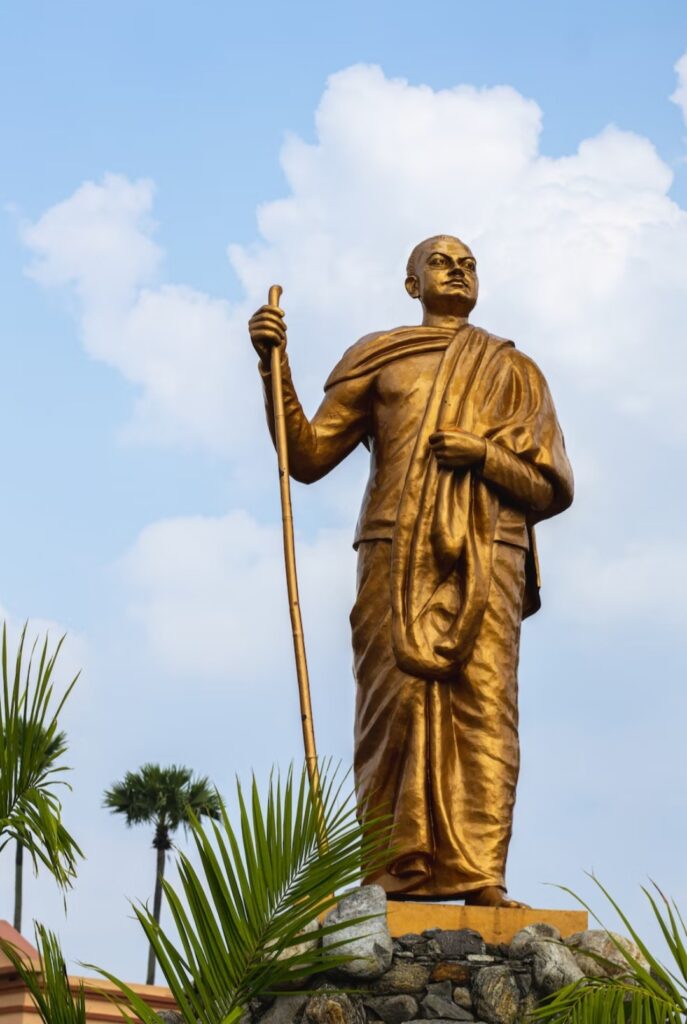
Table of Contents (The Complete Mahabharata in Simple English)
Previous Post: Jaratkaru Places a Condition for Marriage
| Note: In the previous post, we read how Jaratkaru felt great compassion for his pitris but also placed a condition for getting married. In this post, we will find out how Jaratkaru found his wife. |
After assuring his Pitris that he would try his best to find a wife and also having explained his conditions for marriage, Jaratkaru wandered to different places to find a wife, but being old, he could not find any woman who was willing to marry him. This failure to find a woman who would marry him gave Jaratkaru much grief. So great was his grief that he went into a forest and wept loudly. However, he also felt immense compassion for his pitris, and from this desire to do something good for them, he said three times, “I will ask for a bride. I will ask for a bride. I will ask for a bride.”
Jaratkaru looked around and said, “O creatures who lives here, whether mobile or immobile, visible or invisible, please hear my words. My ancestors are grief-stricken and have instructed me to marry for the sake of extending the lineage. I have roamed in poverty and sorrow to different places to obtain a wife who is bestowed on me as alms. O creatures, if any of you have a daughter, bestow her on me as a wife. I will only marry a maiden who has the same name as me and I tell you, (now itself), that I will not be able to maintain her.”
“O creatures,” Jaratkaru cried aloud again, “bestow such a maiden and let her be my wife.”
| Note: You might remember, from a previous post, that Vasuki had convened a meeting of the serpents to find a way to neutralize Kadru’s curse. At that time, one of the serpents called Elapatra narrated what he had heard from Brahma Deva when he sat shivering after being cursed. He had heard that an ascetic called Jaratkaru would marry Vasuki’s sister (who was also called Jaratkaru) and their son would protect the snakes in Janamejaya’s snake sacrifice. At that time, Vasuki had asked a group of serpents to follow the ascetic and inform Vasuki when he set out in search of a wife. |
When Jaratkaru cried out for a wife in the forest, the serpents Vasuki had deployed to follow him, immediately went to Vasuki and informed him about Jaratkaru’s inclination and arrival in the forest.
Upon hearing this information, Vasuki asked his sister to get ready. She decked herself with ornaments and they both went to the forest to meet Rishi Jaratkaru. Vasuki, the chief of the snakes, offered his sister as alms to the high-souled rishi.
When Jaratkaru heard Vasuki’s words, he paused and reflected before giving an answer. First, he asked Vasuki his sister’s name and told him that he would not be able to care for her needs.
Vasuki replied, “O best of brahmanas, my sister’s name is also Jaratkaru, the same as yours, and she has ascetic merit as well. Moreover, do not worry about maintaining her because I will take care of her and also protect her with all my powers. O great ascetic, I have raised my sister to marry you.”
Jaratkaru replied, “Alright, then I will marry her on the condition that she does not do anything to displease me. If she does such a thing, then I will leave immediately.”
| Note: In the next post, we will read about Jaratkaru’s marriage and the birth of Astika. |
Table of Contents (The Complete Mahabharata in Simple English)
Next Post: Jaratkaru Marries Vasuki’s Sister

